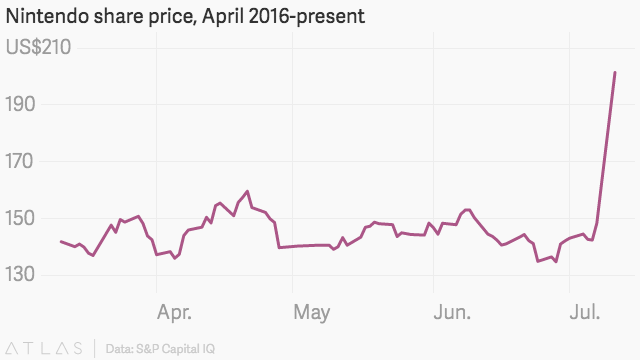Saudi Arabia becomes first country to grant citizenship to a robot
“Saudi Arabia has officially recognised a humanoid robot as a citizen, marking the first time in history that an AI device has been awarded such status.
Specific details of Sophia’s citizenship were not discussed. It is unclear whether she will receive the same rights as human citizens, or if Saudi Arabia will develop a specific system devoted to robots.
The system could work in a similar way to the “personhood” status proposed by European Parliament earlier this year, which would see robots with AI given rights and responsibilities.”


 The app’s popularity has created lagging servers and forced the company Niantic to delay its international roll-out, meaning “Those who have already downloaded the game in the U.S., Australia and New Zealand can still play it, while those in the U.K., the Netherlands and other countries will have to wait.”
The app’s popularity has created lagging servers and forced the company Niantic to delay its international roll-out, meaning “Those who have already downloaded the game in the U.S., Australia and New Zealand can still play it, while those in the U.K., the Netherlands and other countries will have to wait.”